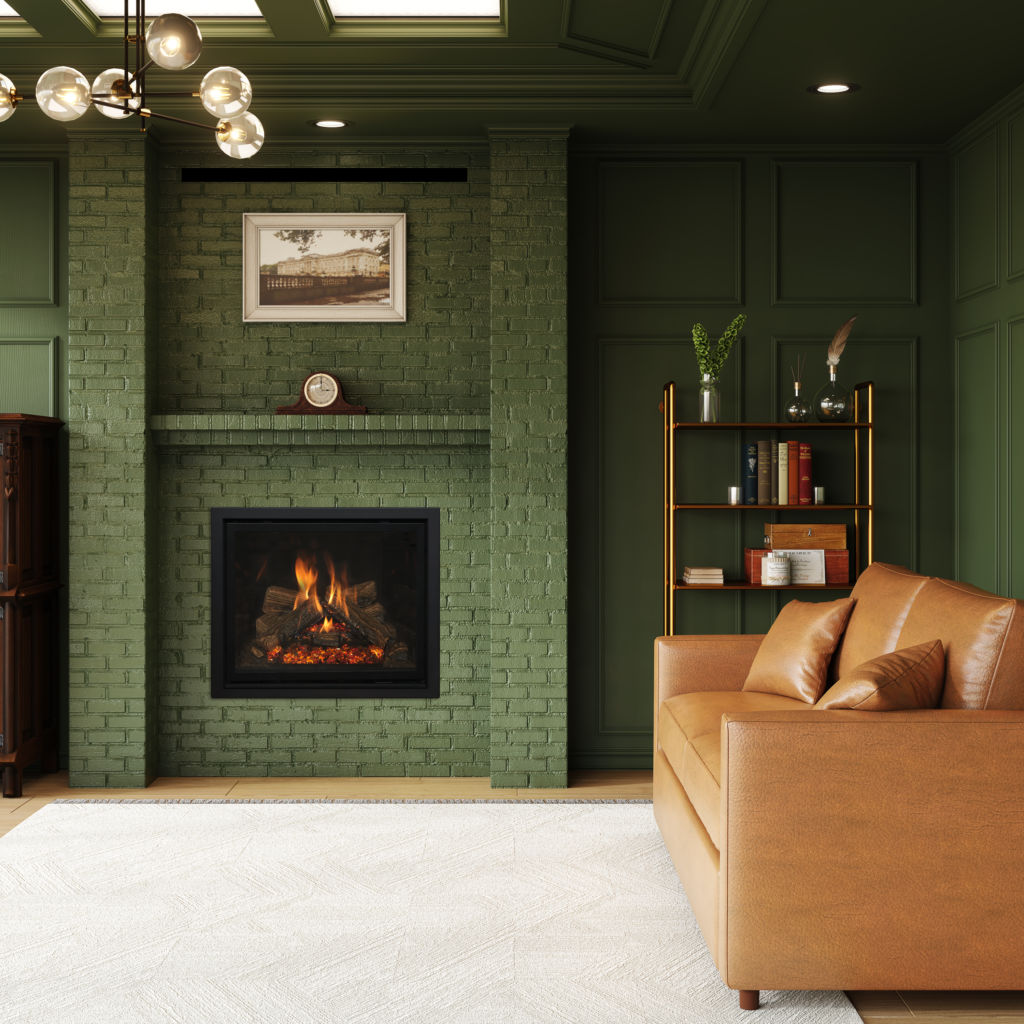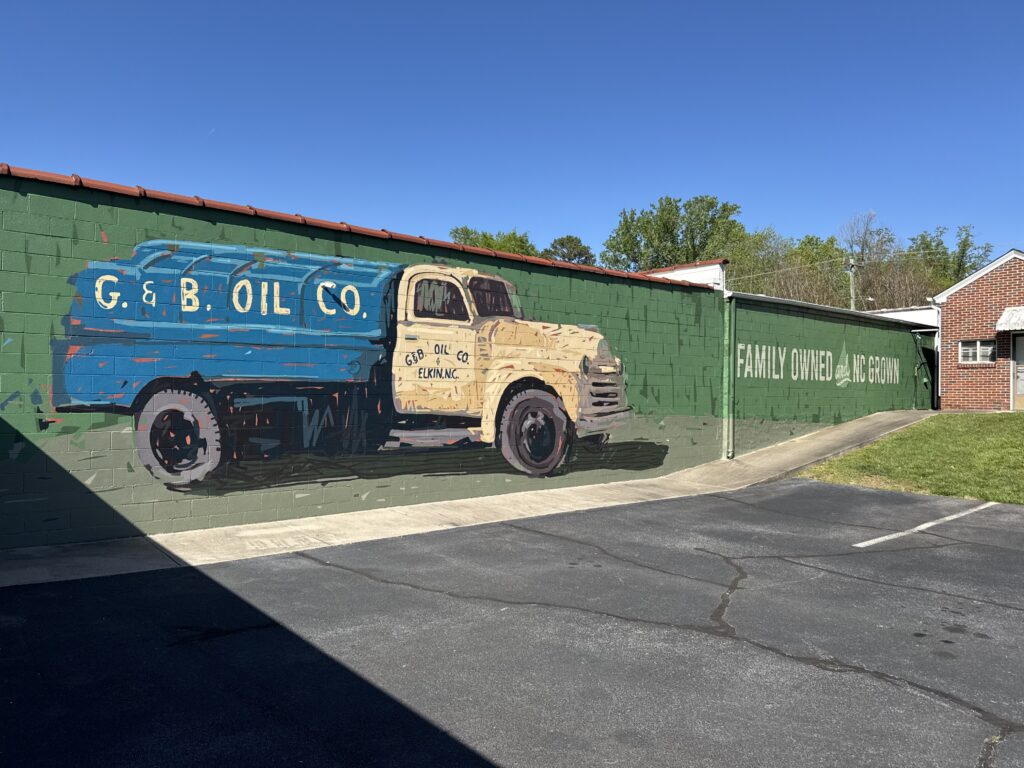- By gb0iL-admin
- In Fireplaces, Propane, Propane Safety
- Tags Fireplace, fireplaces, Propane, propane tanks, propane tips
Propane & Carbon Monoxide Safety Guide
This safety guide will help you learn the difference between a propane gas leak and
a carbon monoxide leak.
By Carrie Gregory
Propane Gas Leaks
A propane gas leak is an emergency. It can result in fire and explosion.
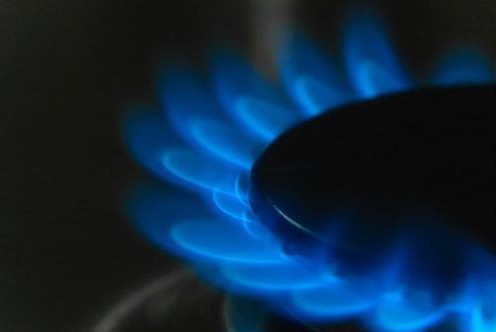
If you suspect a Gas Leak.
A propane gas leak is an emergency. It can result in fire and explosion.
- Get everyone out of the building or area where you suspect a gas leak.
- Upon leaving, avoid igniting the leaking gas. Some electrical devices and appliances can create sparks.
- DO NOT turn any light switches ON or OFF.
- DO NOT interact with any appliances, outlets, or landline phones.
- NO smoking, vaping, or open flames.
- Once you are safely away, call your local G&B Energy, 911, or the fire department. Remain away from the suspected gas leak until a qualified professional determines it is safe to return.
- Turn off the gas at the tank, unless you suspect the leak is at the tank. To close the valve, turn it to the right (clockwise).
- Before using any of your propane powered appliances, have your entire propane system checked by one of our qualified technicians.
Indicators of a Gas Leak
- Propane is odorless, so a unique odor is added to it to help alert people of a leak. Make sure everyone in your household knows what propane smells like.
- Propane Gas Detectors can identify leaks when propane is not smelled.
- A hissing sound may indicate that gas is escaping from a component of your propane system or appliance.
- If you are using more propane than you expect, there may be a leak.
Install Propane Gas Detectors
A propane gas detector will sense propane. Always follow the manufacturer’s instructions for installation, use and care. *Note: Propane gas detectors are different from smoke detectors and carbon monoxide detectors. If the alarm sounds, treat it as an emergency and act immediately, even if you do not smell propane odor. NEVER ignore the smell of propane even if your detectors do not alarm.
Carbon Monoxide
Carbon Monoxide Can Be Deadly. Be Prepared To Respond.
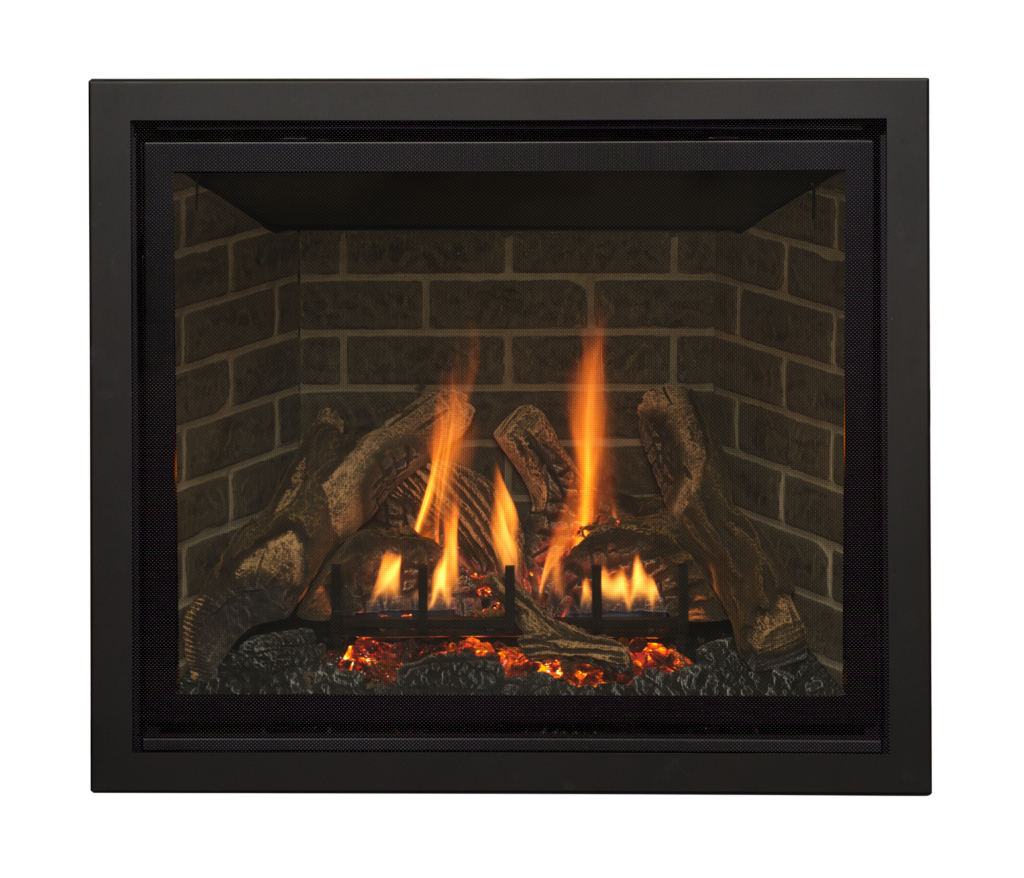
What is carbon monoxide (CO)?
Carbon monoxide is a poisonous gas that is colorless, odorless, and tasteless. High levels of carbon monoxide can cause brain damage or death. Young children, elderly, people with heart disease, and those under the influence of alcohol, drugs, or medication are particularly susceptible to carbon monoxide poisoning.
If you suspect carbon monoxide is present.
- Everyone should get out of the building and away from where carbon monoxide is suspected.
- Call 911 or the Fire Department to report the presence of carbon monoxide.
- Stay away from the suspected carbon monoxide until an emergency responder or other qualified professional tells you it is safe to return.
Where do unsafe levels of carbon monoxide come from?
Unsafe levels of carbon monoxide can be generated by appliances that are defective or improperly installed, operated, or maintained, or have air intakes blocked. Carbon monoxide can also enter a home if an appliance venting system or chimney becomes blocked.
Indicators that unsafe levels of Carbon Monoxide may be present.
- Carbon Monoxide Detectors will sound an alarm when they sense excessive levels of carbon monoxide in the air.
- Exposure to high levels of carbon monoxide can cause symptoms like:
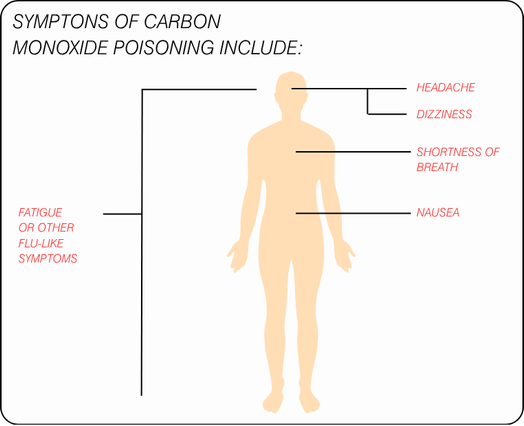
- Unsafe levels of carbon monoxide can be created when fuels are not burning properly or appliances are malfunctioning. Signs this might be happening include:
- Soot, especially on appliances and vents
- Unfamiliar or burning odor
- Increased moisture inside windows
To reduce the Risk of Carbon Monoxide Poisoning:
- Install a UL-Listed carbon monoxide detector on each level of your home. Always follow the manufacturer’s instructions.
- Have a qualified professional check your propane appliances in accordance with the manufacturer’s instructions and schedule.
- Regularly check your appliance air intake and exhaust vents to be sure that air can flow in for the gas to burn properly and exhaust gases can flow easily to the outdoors.
- Keep vents and chimneys free of debris such as leaves and animal nests. In winter, keep them free of snow and ice.
- Always follow the manufacturer’s instructions for placement and use of vent-free appliances, including fireplaces and logs.
- Heat only with appliances intended for indoor heating.
- NEVER use a gas oven or range-top burners to provide heating.
- NEVER use portable heaters indoors, unless they are designed and approved for indoor use.
- NEVER use a barbecue grill (propane or charcoal) indoors for heating or cooking.
- Never run an internal combustion engine, such as your car, lawn mower, or generator in enclosed areas such as your garage.
At G&B Energy, we pride ourselves on offering our customers responsive, competent and excellent service. We have been a North Carolina based family-owned business since 1930. We have a full propane service department with licensed and safety-trained technicians. We invite you to visit or call one of our nine locations where we sell a wide variety of home improvement products including fireplaces, stoves, grills, outdoor kitchen products and gas water heaters.
Thank you for being a part of our G&B Energy family.
Share & follow
For any inquiries, please contact:
G&B Energy
855-LPG-PROS (855-574-7767)
gbenergy.com
facebook.com/gbenergy

